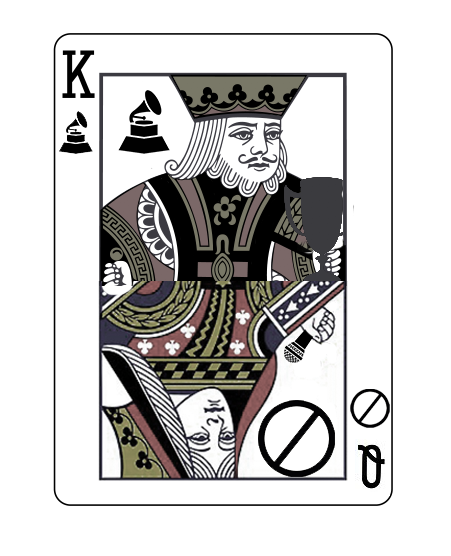Double standards in the music industry belittle women

Art by Drishti Upadhyaya
December 13, 2019
Many songs, whether the average listener realizes it or not, are full of misogynistic or misandrist lyrics. While both misogyny and misandry are not acceptable when it comes to music, misandry is usually milder than misogyny. Nevertheless, misogyny is still regarded as more acceptable.
The problem is that whenever a woman makes a derogatory song about men similar to songs men make about women, there’s backlash. This is seen by the backlash of the song “STUPID” by Ashnikko, a song that talks about how Ashnikko doesn’t need a guy, but he still thinks about her.
The industry’s position on misandry doesn’t compare to how it views misogyny. Misogyny is normalized in the industry. To show the vast difference between misandry and misogyny in music, I’ll next use some popular songs as examples.
In Taylor Swift’s song “Blank Space,” Taylor Swift says, “Boys only want love if it’s torture/Don’t say I didn’t say I didn’t warn ya.” Taylor Swift is known for being generally harsh to men in her songs. Most of her music concerns breakups or her experiences with love. These songs are based on her own experience, and you can’t change them. At the same time, though, she still makes generalizations which can be harmful to the group they’re directed at, like this one which states that boys aren’t able to have meaningful relationships.
Juice Wrld’s song, “All Girls are the Same” is a breakup song similar to Swift’s. The difference: he is much more harsh in his depiction of women, coping with his loss by blaming all girls.This could parallel Swift’s song in the way that she said that all boys want love only when it’s “torture.” The main difference is that he says that girls don’t have love to give. Also, he uses derogatory terms to talk about girls, as seen in “They’re rotting my brain, love / These h*** are the same.”
He uses the word h** when referring to a girl, and even though he reverts to using “girls” for the majority of the song, “h**” was still added in a couple of times, reflecting the trend of using derogatory terms like b**** and t*** to refer to women in music. There aren’t many derogatory terms like this that are used in music to refer to men that are used by women.
Misogynistic songs degrade women by making extremely harsh generalizations. Wrld’s song says that girls don’t want love; while you can argue that Swift does the same thing, when Wrld uses the word “h**,” he degrades women much more, implying that all single girls want only the sexual part of a relationship. This degrades women much more than calling a man a boy; the denotations as well as connotations are much more negative, making the misogynistic insult much worse.
Because these two songs are in different genres, pop and rap, the distinction might seem to be caused by the difference between these genres of music, but this isn’t true. Two songs in the same genre can also show this divide between misogyny and misandry.
“How to be a Heartbreaker,” a pop song by Marina and the Diamonds, talks about playing with boys’ feelings and says that they can be easily persuaded with a little “danger.” This is seen in these lines: “We’ll get him falling for a stranger / A player, singing I lo-lo-love you / At least I think I do.” Boys have reacted to this song negatively because it makes boys seem like an object. This is a common theme in music about love, where the artist tells the listener tips on how to get a person to fall for them, usually berating the opposite sex in the process of doing so.
“Blurred Lines” by Robin Thicke is a similar pop song in that sense. It was popular song in 2013 and was featured in the 2013 YouTube Rewind. In the song, he says, “OK now he was close, tried to domesticate you / But you’re an animal, baby, it’s in your nature.” This relates a girl to an animal by implying that the girl is simply an animal and that it’s natural for her to be controlled by a guy. On top of that, he says “I know you want it,” which carries the disturbing undertone of rape.
In Thicke’s song, he talks about using a girl, similar to what the Diamonds do, but Thicke’s addition that the girl “wants it” is uncomfortable. Asserting that a girl wants it without her saying that she wants it herself is not okay. Above all, rape is not acceptable. This makes The Diamonds’ song more gentle than Thicke’s, even they both technically deal with misandry and misogyny, respectively.
All four of these songs were able to become extremely popular. This demonstrates how wildly accepted misogyny is, since degradation of women is accepted much more widely in music. I think that, at least, if we can’t get rid of the misogyny in the industry, songs with a similar level of misandry (like the song “STUPID” mentioned at the beginning), should be more accepted, and face less backlash. This way, we stand a greater chance at equality in the music industry.

